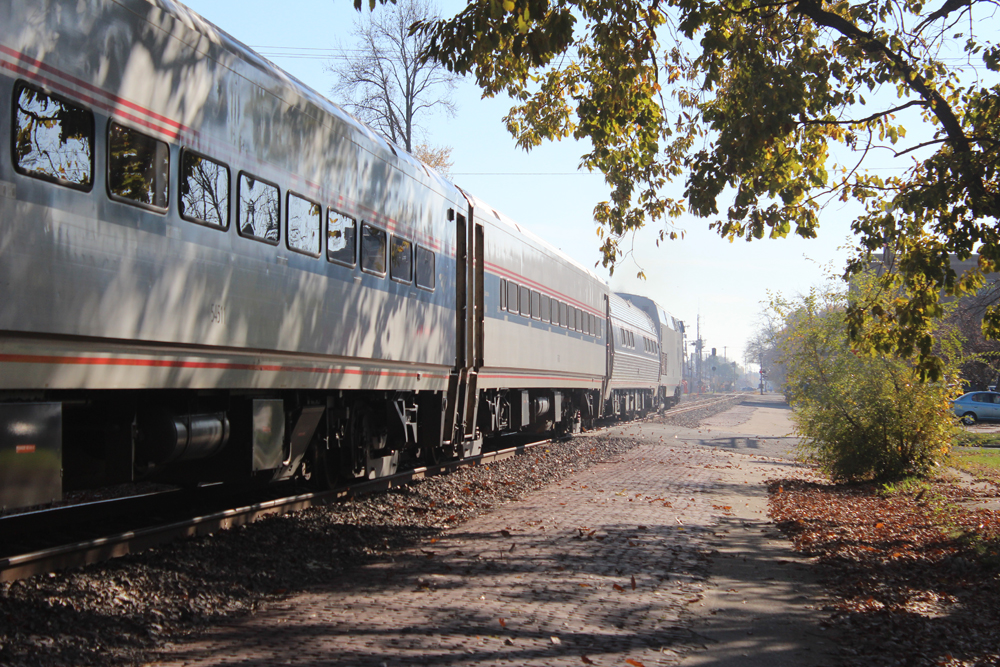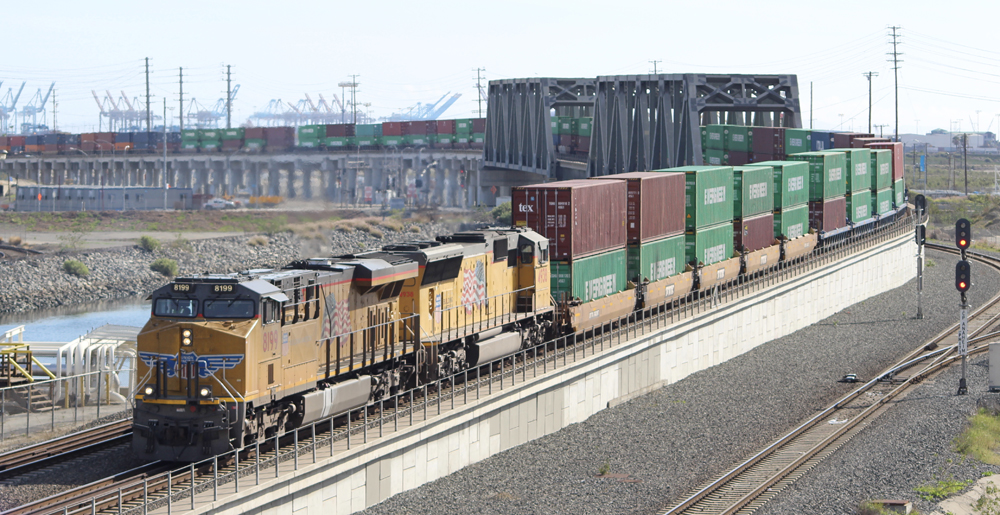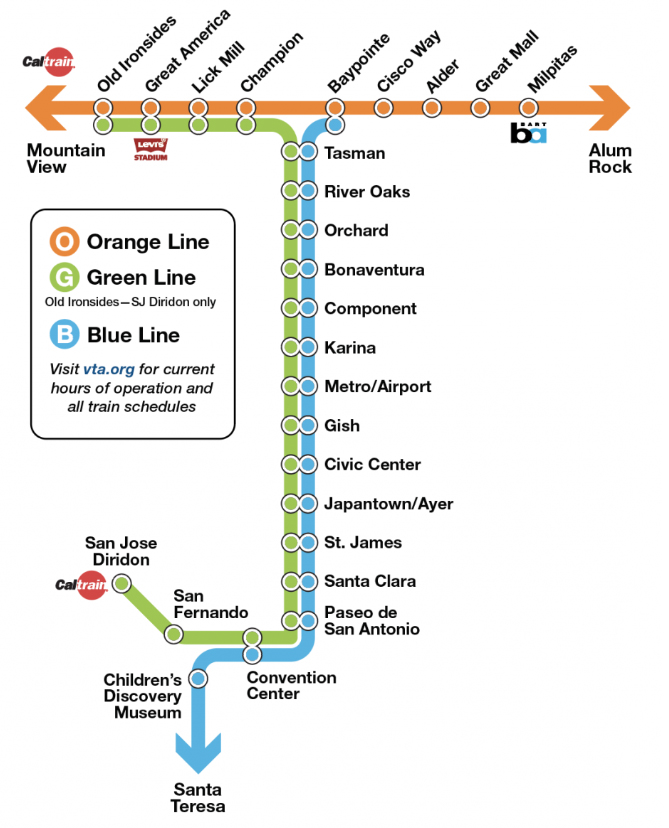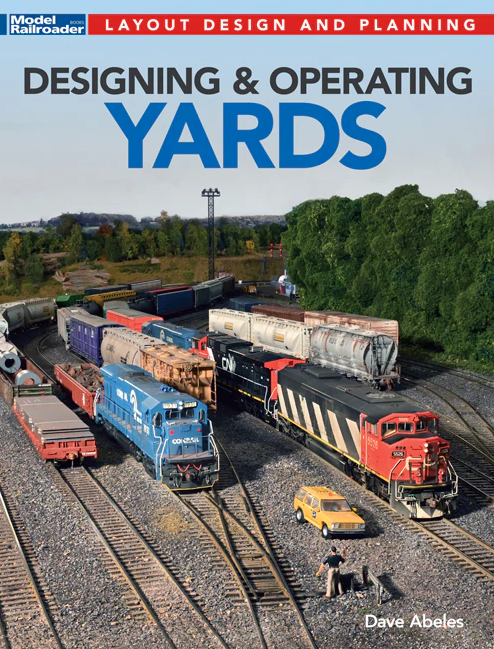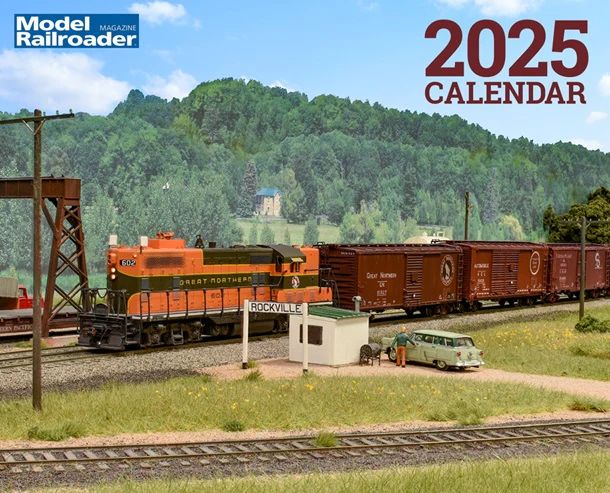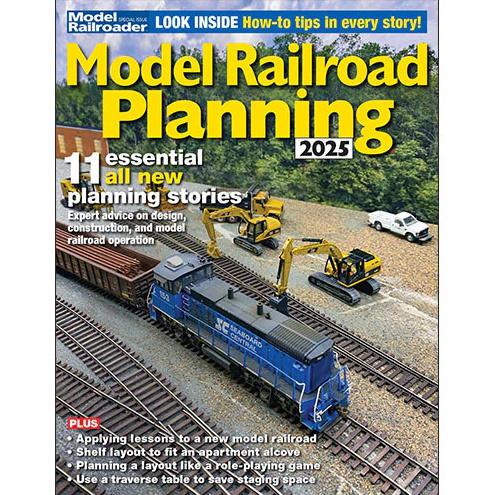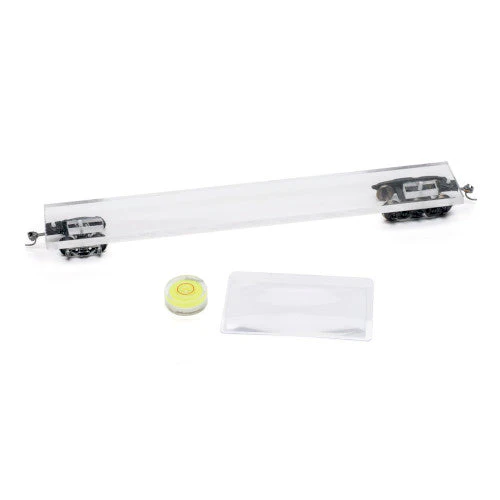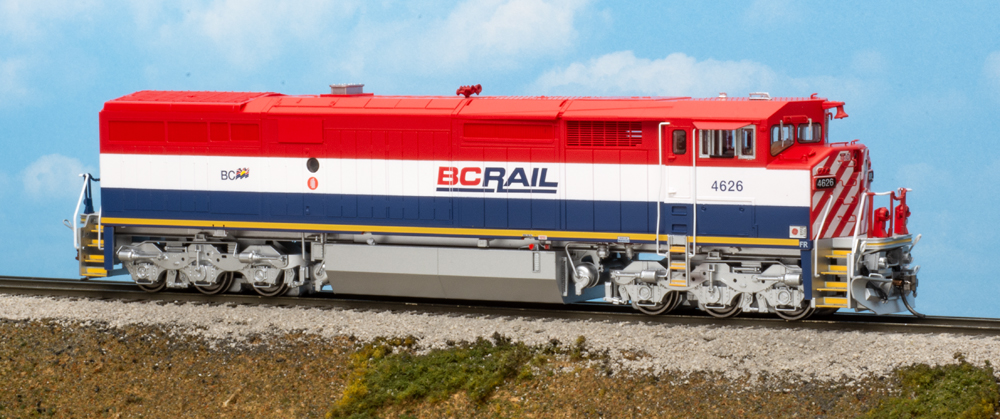
The General Electric Dash 8-40CM diesel locomotive is back in the Rapido Trains product lineup. The redesigned six-axle road locomotive features a newly tooled fuel tank, cab interior, and trucks; railroad-specific details; and full underbody details.
Prototype history
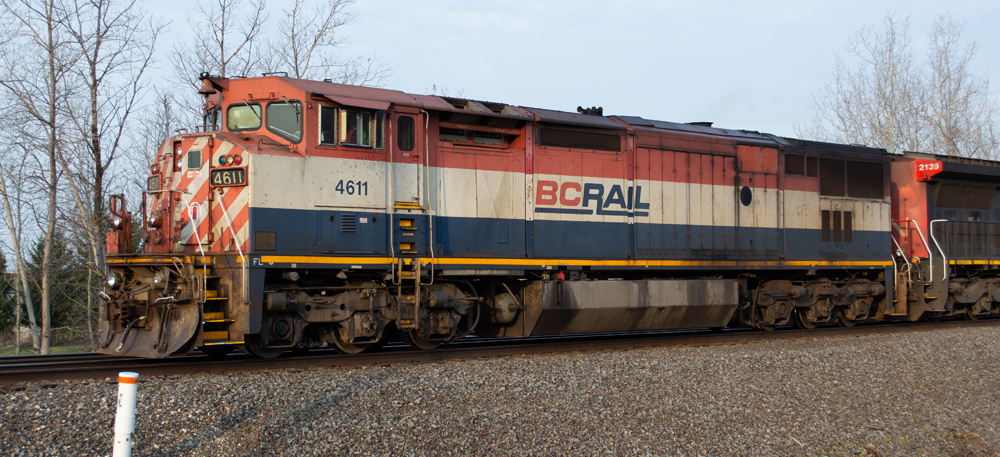
General Electric (GE) produced the Dash 8-40CM from February 1990 through March 1994. During the course of the production run, 84 units were built. Canadian National had the largest fleet with 55 units, followed by BC Rail with 26 and Quebec, North Shore & Labrador with three.
The sample we received is decorated as BC Rail No. 4626, part of the railroad’s 4601 through 4626 series. BC Rail placed two orders for the Dash 8-40CM. Units 4601 through 4622 were built in 1990. Three years later, engines 4623 through 4626 rolled off the assembly line at GE’s plant in Erie, Pa.
Model features
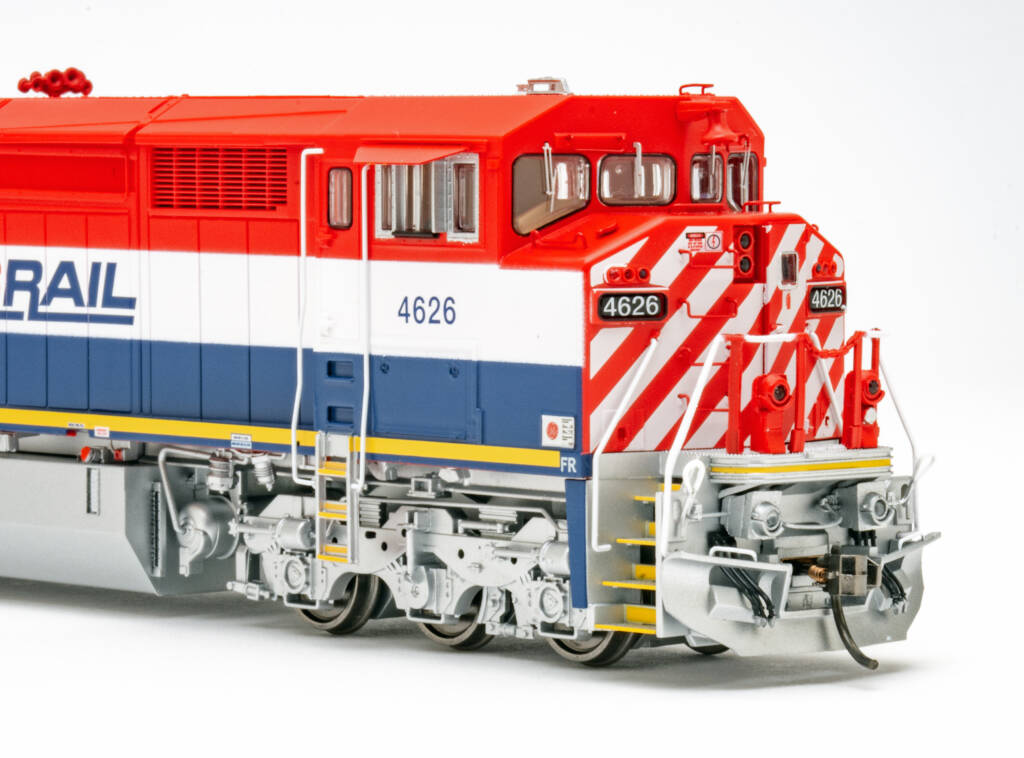
The Rapido model uses plastic and die-cast metal construction. As with other diesels from the manufacturer, the BC Rail unit is loaded with details. The front of the engine has a factory-applied snowplow, an anti-climber pilot, and wire grab irons. Both pilots have three-cluster m.u. hoses and uncoupling levers; the rear pilot also has spare coupler knuckles.
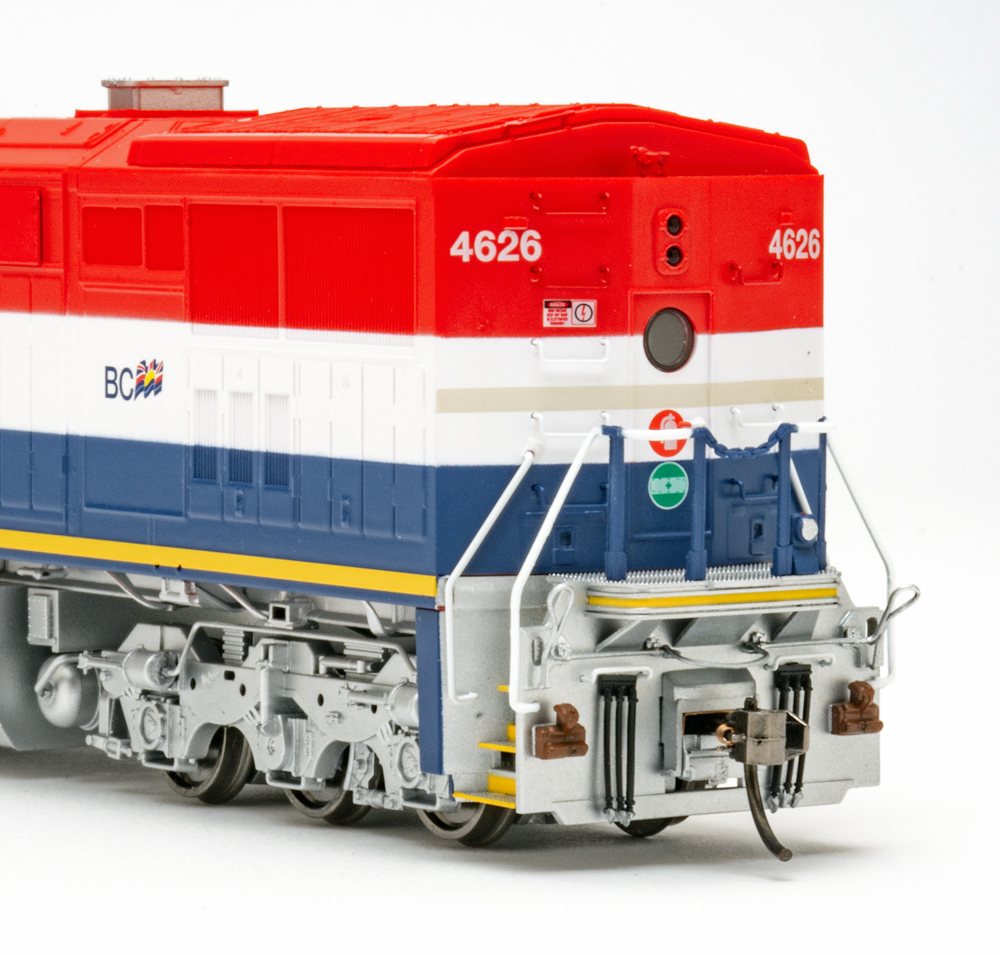
The North American cab has separate sand filler hatches, windshield wipers, grab irons, and a cast-metal bell. Behind the flush-fitting window glazing is a detailed cab interior. The cab roof features two antennas.
Like the prototype, the BC Rail model has lots of lights. The headlights are on the nose. Above the number boards are tri-color class lights. The rock (or corner) lights are on the front pilot; the ditch lights are atop the m.u. stands.
The Dash 8-40CM is the first model we’ve received that’s equipped with Mo-Power, a capacitor-based system that stores energy and allows the model to operate over dirty or dead rail. The capacitors are located over the rear truck.
Measuring up
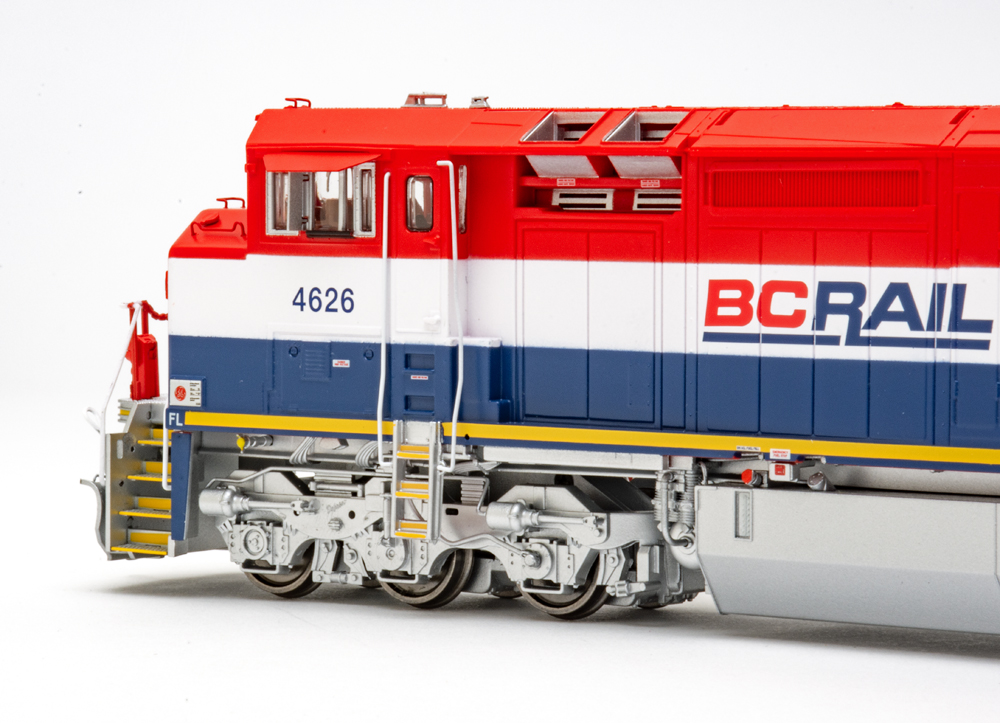
Our sample is painted in BC Rail’s red, white, and blue scheme. The separation lines between colors are mostly crisp. The placement of the graphics follows prototype images. The 4626 had its steel bell replaced with an electronic bell prior to CN leasing the railroad’s freight operations in 2004. The yellow sill stripes and steps were added by CN.
The sample we received has an ESU LokSound 5 sound decoder. I tested the model at the workbench with an NCE Power Cab. At step 1, the six-axle road unit crawled at less than 1 scale mph. Quite impressive! At step 28, the model achieved a top speed of 75 scale mph. The full-size BC Rail Dash 8-40CM diesels had a maximum speed of 65 mph. The model has a drawbar pull of 3.7 ounces, equivalent to 52 free-rolling freight cars on straight and level track.

Prototype drawings of the GE Dash 8-40CM were published in the September 1995 issue of Model Railroader magazine. The majority of the dimensions match or closely follow published data. The locomotive’s ride height is around 3 scale inches too high.
Though many GE Dash 8-40CM diesels started their career north of the border, they migrated south as CN’s rail network expanded into the United States. The Rapido Trains cowl-bodied model would add some visual interest to any HO diesel fleet set between 1990 and today.
Facts & features
Price: direct-current models, $239.95; with dual-mode ESU LokSound V5 sound decoder, $349.95
Manufacturer
Rapido Trains Inc.
500 Alden Rd., Unit 21
Markham, Ontario, Canada
L3R 5H5
Era: 1990 to present (varies depending on paint scheme)
Road names: BC Rail; Canadian National; and Quebec, North Shore & Labrador. Two to six road numbers per paint scheme.
Features
- Metal knuckle couplers, at correct height
- Metal wheel stubs on geared plastic axles, correctly gauged
- Weight: 1 pound, 2.9 ounces







